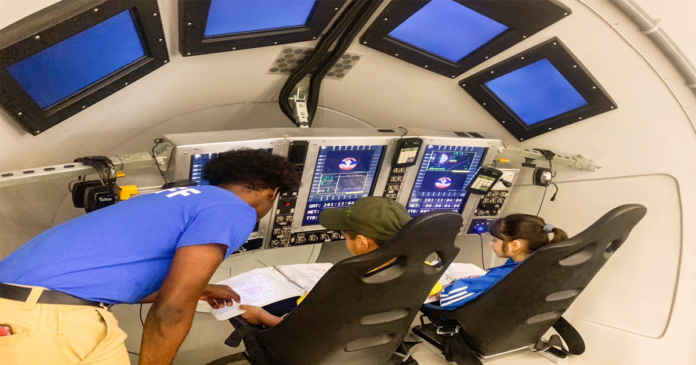At their Karachi school, Bisma Solangi and seven other classmates spent the majority of their time working on a science project in which they attempted to create anti-sleep spectacles that would prevent drivers from falling asleep by sending out prompt alerts.
Pakistani students visit NASA space: The eight-person team attended the esteemed US Space and Rocket Center’s educational space camp in Huntsville, Alabama, last month thanks to the innovation, one of the major winners at an inter-school science competition on the topics of eco-sustainability and entrepreneurship. Two teams from different schools, each with eight kids, joined them.
According to Solangi, “Our teacher gave us the idea, and we made the project for night driving.” But right now, we’ll work on it and finish it in time for the day.
In order to identify when a motorist was going to fall asleep behind the wheel, Solangi stated that the anti-sleep glasses used algorithms to detect eye movements and facial expressions. Alerts were then sent to the driver to prevent them from falling asleep.
News reporters chose eight kids from our school, and Mudassir Hassan, who was on the same team as Solangi, told News, “We made anti-sleep glasses together.”
The children viewed their time spent at the US camp as a “learning” experience.
Solangi claimed that she had always wanted to be a doctor, but after going to the camp and doing numerous jobs and missions, she decided she would rather become a scientist when she was older.
“They used to tell us about space, how people travel in space, and how they eat and live there,” she remarked.
She said, “We built a rocket, went on a Moon-Shot ride, and performed a mock moonwalk.” A Moon-Shot ride simulates rapid acceleration followed by a brief period of true zero gravity.
Hassan claimed that the encounter broadened his understanding of science.

